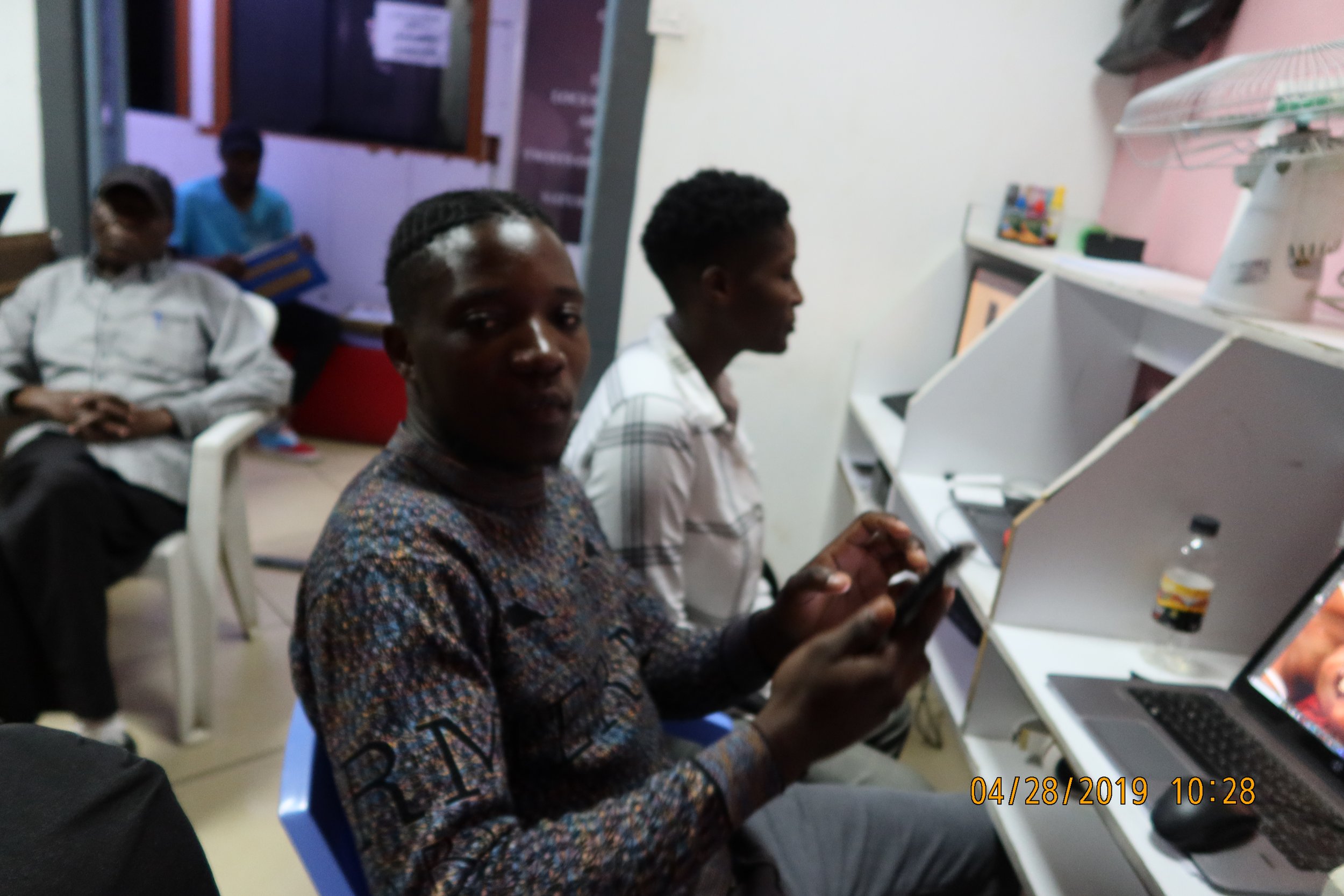Giving our students an edge – with computers
Incoming tertiary school student Nancy Chitechi gets acquainted with her new friend. CES donors’ generosity will make it much easier for students including Nancy, to do their assignments.
Many students from families in poverty – as are many CES students – cannot afford a computer of their own. This means that completing their university assignments can be a struggle.
Many of our students say that life for them, without access to much familial or generational wealth, is harder than it is for those “having.” That term, “having,” includes many facets of privilege from family wealth. That includes not having to worry about paying rent, not having to share a room, and not having to worry about paying tuition and other costs. It also means having the use of a computer with the necessary software, plus the usual pay-as-you-go Internet access, called “bundles.”
While many international universities have well-equipped computer labs, and many public libraries also offer access to networked computers, that’s not always the case in Kenya.
This means that many students from families in poverty, as most CES students are, are faced with difficulties when it comes to doing online research and even completing their assignments.
Some are able to borrow a computer from a friend – but that computer may not be available when it’s most needed.
Many students end up using a “cyber” – a cyber café, although no “café” is involved. It’s just a business that offers cubicles with networked computers that can be rented literally by the minute. The business will offer printing as an extra. The fees are small, but they add up.
Inside a “cyber” in central Kakamega, Kenya – image taken by the business owner.
Outside a typical “cyber” in Kakamega, near the Masinde Muliro University – with Patricia Makori, Principal of CES’s School of Continuing Education.
One issue with relying on a cyber is that they tend to be very busy at times when students are trying to complete assignments – so students may waste hours waiting for a computer to become available.
CES has since 2016 provided post-secondary Leadership students with computers so that they can participate in their on-line studies through CESCED. Students need a networked computer to complete their assignments. In addition, a computer will give our students the tools they need to study at university or college. This year, we have eight Leadership program participants.
So in early 2024, thanks to the continued generosity of our donors, we asked Administrative Assistant Sarah Nabongo to source locally eight refurbished but entirely functional computers, which she did. We wanted to buy locally partly to avoid the issues of having to import the equipment into Kenya, and partly to stimulate a local business.
Sarah reached out to a local computer consultant, Elvis Anyula, who agreed to source eight refurbished laptops with software and cables, and provide our eight Leadership students with some instruction on the use and care of computers.
Based on Sarah’s recommendation, students will be responsible themselves for learning how to use the equipment – possibly through one of several computer-training institutions in the area and elsewhere.
The computers remain the property of CES and will be returned after the students have graduated.
Our Leadership students are now learning the ins and outs of their computers, which they’ll put to good use when they start the Leadership program – and again when they join their tertiary institutions in September. Thank you to all donors who helped make this game-changing advantage possible – leveling the playing field for our students, so they have the best possible chance to build a better future for themselves.



